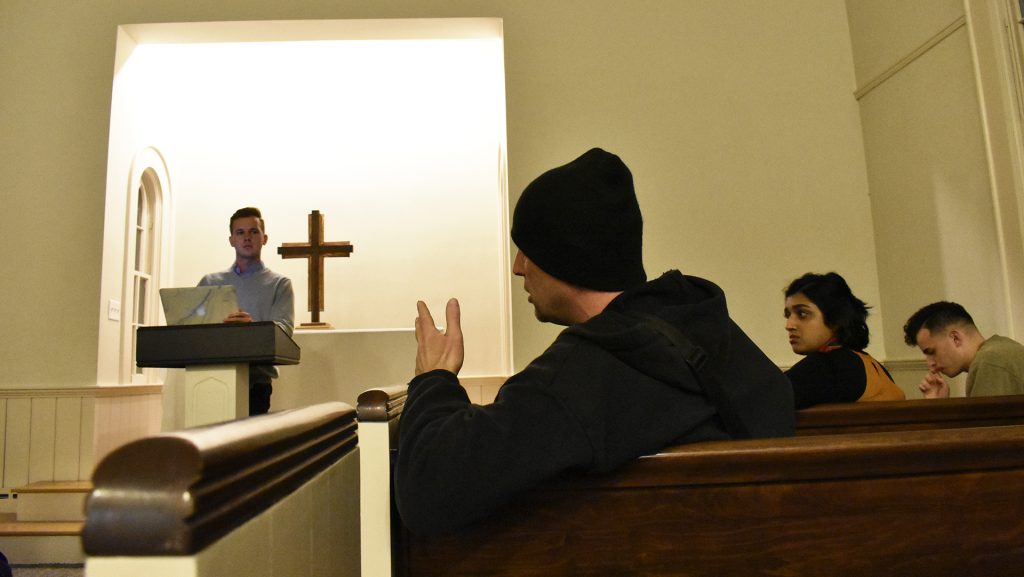Campus climate and inclusion were the focus of a Monday evening town hall.
University of Iowa Student Government held its fourth town hall Monday to address the topics, in addition to diversity.
The forum was sparsely attended, with fewer than a dozen people outside of present UISG members. The lack of attendance, as well as the vagueness of the topic at hand, sparked much of the opening conversation.
The issues at hand were largely determined by the audience, and discussions ranged from concealed carry on campus to addressing issues of racial bias and abuse.
“The one thing I really value about town halls is that … even though we have a small group in the audience, these conversations are so important,” UISG President Jacob Simpson said.
He noted that reaching out to specific student organizations that focus on particular issues might be a way to bolster attendance.
“For a lot of students, there’s a lot of mystery around student government, and they’re not sure what our role is,” said Alex Bare, the chair of the UISG Justice and Equity Committee.
He advocated for paring down town-hall topics and hosting the forums in larger locations.
One idea brought up would be requiring Diversity and Inclusion general-education classes for all UI departments. The UISG members expected issues relating to diversity to be the primary focus of the event.
“I think we were expecting a conversation about … how welcome or not students feel on campus, but the term ‘campus climate’ is not super clear,” said Apoorva Raikwar, the director of the Justice and Equity Committee. “It’s not a bad thing, with what we ended up talking about.”
Conversations were also held about having plainclothes officers around campus to deter potential mass shootings and the possibility of using Hawk Alert or a similar application to report instances of racial harassment.
Another discussion revolved around having a more diverse representation of people at multicultural center events.
“A student talked about how we hold a lot of events that are meant to expose people to different identities, but what we see is that members of that specific identity group might attend that event, but people who don’t identify with that group aren’t going to those events,” Simpson said.
The UISG officials also said the school has been considering revamping the multicultural centers entirely for about a decade. The idea would be to create one centralized building that services members of all identities instead of having houses that segregate a small handful of communities.
“We are missing representation from very prevalent identities on campus through our cultural and resource centers, so it’s important that we continue the conversation about serving students who don’t specifically identify with one of those [groups] and make sure they feel welcome,” Simpson said.
The student-government members also said their group could do a better job bridging the communication gap with the general student population.



